John Dies at the End
by David Wong
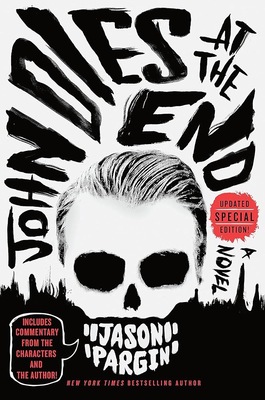
Big read for a book club. The book is a complete mess and chaos. While it was fun and intriguing in the beginning, I got tired of pointless descriptions and a messy story structure. It’s interesting that not a single person in the book club liked it.
Limitless
by Jim Kwik
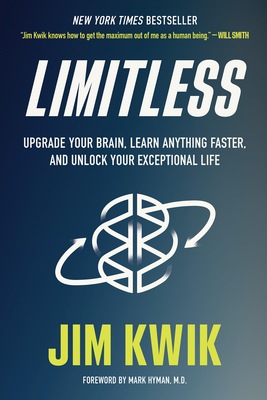
I'd say this is a motivational book with a collection of mainstream advice on learning. It provides a surface-level overview and probably would be useful for people who start a self-development journey.
Personally, I found this book boring, shallow, too long, and yet not detailed enough. A lot of pages were wasted on the author's bragging about himself and his work.
The War of Art
by Steven Pressfield
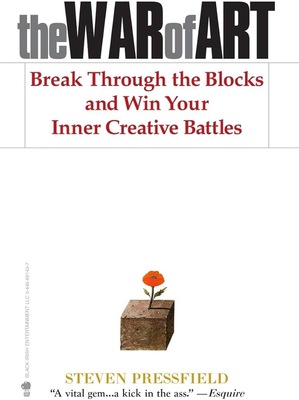
This is a short and entertaining book about art and its creation process. It describes the challenges, and shows what the process of art creation is and is not. I don't take it seriously, but there are some good quotes.
After thinking why anyone should read it, I'm struggling to come up with a reason. So I have to downgrade my rating from 3 (average) to 2 (meh).
Lifespan Why We Age and Why We Don't Have To
by David A. Sinclair
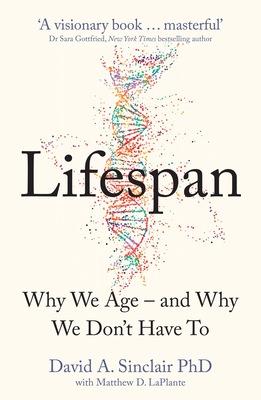
The book turned out to be a disappointment. I feel the author's main goal was to hype how good it is to live longer, so we should increase research funding. And he might be right, but that does not make this book better.
The hype feels overblown in how far the research falls short of the promised picture.
I don't like how the book is written. Headings are confusing, it's hard to get the point of sections, stories are distracting, and there is little applicable knowledge.
A few things that stood out:
Chapter 1 summarises the current research on why we age. It's not DNA damage but a summary of nine factors. I found it insightful.
Chapter 4 says nine amino acids, saunas, ice baths, and fasting are good for you. It’s good to get another confirmation.
Chapter 5 goes into science and technicalities. I didn't find it as useful as it's not useful knowledge for most people.
Towards the end, the book discusses the consequences of longer lives on society. It's fun to think about in this context.
The Great Mental Models, Volume 1 General Thinking Concepts
by Shane Parrish
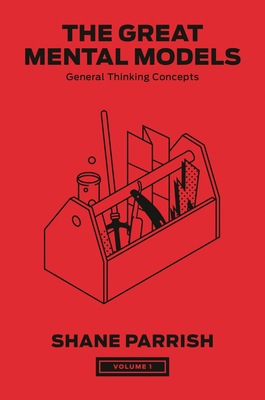
The book is a compilation of some principles that could help to make better decisions. I found it a good reminder, but I think such a book format is not very valuable. While I'm fully onboard with promoting mental models, the book lacks depth. I find it hard to apply random principles in practice. Just because we know what it is, doesn’t mean we can use it.
The book is short and to the point, which is always appreciated. It seems like the author is planning to write a series of books. But this book didn’t resonate much, so I won’t be reading the following volumes.
Kaput: The end of the german miracle
by Wolfgang Münchau
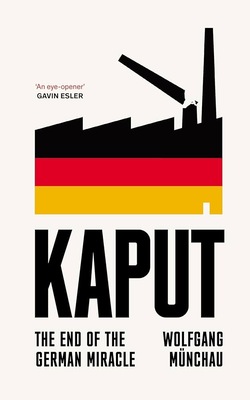
I'm getting more and more into economics. Saw this book and it captured my interest. The book argues for Germany's economic decline. I found it interesting to learn more about Germany and some of its recent history.
I really disliked the author's writing. It's repetitive and dives into unnecessary politicians' details. I think that was added to boost the number of references. Speaking of which, I don't like them per chapter and not per sentence. It diminishes the credibility, as very few people would read all chapter references to find the sources.
The authors' opinion is biased in places and the book fails to argue some points well. And yes, the argument is usually one-sided and fails to explain and paint the full picture. It's easy to argue when the choice is made, but it's much harder to reason about the choice itself.
Speaking of a big picture. I'd like to see some suggestions or examples of how those issues were addressed in other countries. Just because things are bad, doesn't mean they could be much better given many external factors. That would give some perspective to the prediction.
The book was released last month in November 2024. I think the book won't age well and will become dated quickly. However, I think it can offer one perspective while it's fresh.
The Old Man and the Sea
by Ernest Hemingway
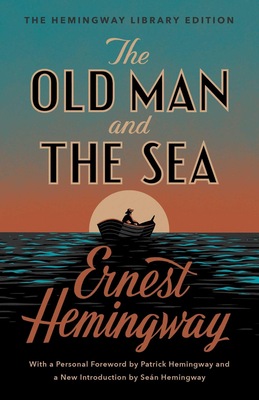
A classic novella. It's well written but lacks purpose for me. I enjoyed the audiobook but only because it was 1 hour long.
My favourite quote is "a man can be defeated but he can't be destroyed".
Rocket Surgery Made Easy
by Steve Krug
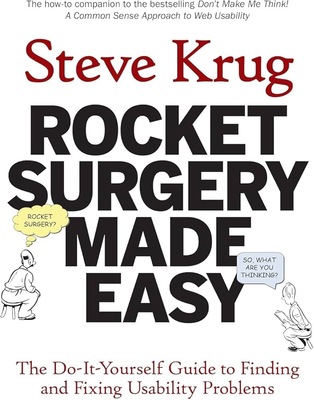
The previous book didn't give me enough details and I was eager for more. The author promised this is the book. It is even more disappointing. It's way too long, very repetitive and surprisingly already dated considering it was published in 2010.
There are some useful tips on how to run a usability test, but that could be a blog post.
Radical Candor
by Kim Scott
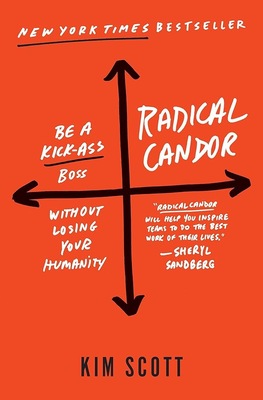
This book has been a long time on my to-read list, and reviews are high. Recently I saw startup incubator was recommending it so I got it. And oh my, this book is poorly written. The book feels like an author's career brain dump. It's waaay too long, full of name droppings and lacks insights.
The book has two parts. The first part is about the "radical candor" concept. In short, be honest and direct at work, it's more productive for everybody. The second part is a collection of management tips. Most of them are common sense for an average manager. But it was still interesting to read Kim's experience and use it as a reminder.
I think as a society we need better managers, so I welcome any management content. High ratings of this book is just another proof of how bad we have it.
The Master and Margarita
by Mikhail Bulgakov

I don't read much fiction, so this book was another occasional dip into it. I picked one of the most popular novels of the 20th century this time.
It's an interesting story and well written. There are many references to history and religion.
I didn't enjoy it though and I was struggling to finish it. Most references were not obvious to me and after researching them, I don't think that would have changed much. In comparison to movies, I found the novel much less dimensional.
If you are into fiction I'd recommend this book. However if the book does not resonate from the start, I don't think it will improve later for you.
Zen and the Art of Motorcycle Maintenance
by Robert M. Pirsig
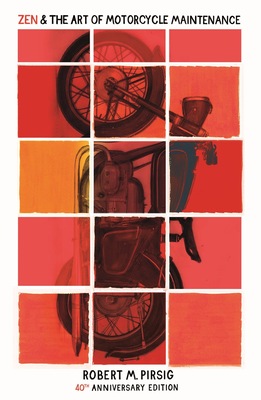
This is one of the most famous books about philosophy. Few years ago my partner at the time gifted me this book for my birthday. She thought it's about motorcycles, so it was an easy choice for her. Over the years I've heard about this book from different sources. The most recent one was in this video.
This is a long book, and seems like the readers split into two distinct categories. Who loved it and found it life changing, or who didn't get it much. I'm in the second group.
It has a story which represents a life journey. I found the book's philosophy a bit shallow. There are two main points to it.
The first one is the talk about classical and romantic approaches. It's a discussion between science and creativity or intuition. The book was written in 1974 when the hippy movement was very popular. Rejection of technology was a common trend at the time. The book talks about the differences between the two ways of thinking and how the best place is to absorb both and be between them.
I think this discussion is still relevant in 2024 as we are still looking for that balance as a society. Interesting that I drew parallels to the movie Matrix. In the second movie people in Zeon city see machines as evil and yet their lives depend on them.
Science vs art discussion is also relevant to my career in software engineering, which is both. Such inconclusive balance baffled the industry for decades and we are yet to accept it as a norm.
The second point is a discussion about Quality. To be honest I didn't get it. I checked multiple book explanations and still don't understand it. So if you know, tell me. Interesting that there is a whole wiki page for it Pirsig's Metaphysics of Quality
Competing Against Luck
by Clayton M. Christensen
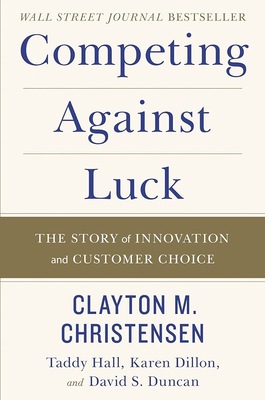
The book talks about how to build companies that solve problems for customers. This book would be a good introduction to people who are new to product development. In short, think of what value you are bringing to a customer. The author phrases it as a Job to Be Done.
The book is short but still too long. It could be summarised in a blog post. While reading I felt that this book was written to justify consulting services Clayton is charging companies.
The book is easy to read and has many stories. Those stories though are suffering from selection bias and have little connection to the book ideas.
I would recommend this book to people who are new to product development, otherwise don't bother. Just read the book's summary.
The Art of Loving
by Erich Fromm
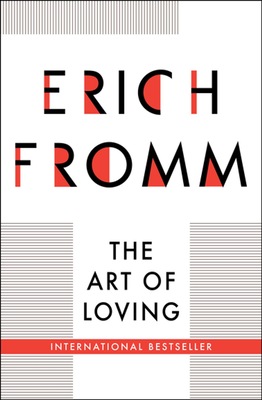
This is relatively short book, but I found it exceptionally hard to consume. The language is very dated. The abstract form of writing doesn't help it either, but probably contributes to its popularity as readers can interpret it in many ways. There are plenty of good bits in the book. The parts that I understood, I don't disagree with anything.
This book is my friend's goto recommendation for a book about love. However I wouldn't recommend it for the stated reasons above.
Rich Dad Poor Dad
by Robert T.Kiyosaki
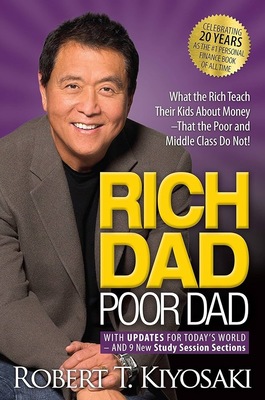
This was one of the first books I read 15 years ago. It was the most upvoted book for a discussion so I thought it would be an interesting experience to re-read and reflect on it.
Now I can see why this book resonates so well with people. It over promises the results and misleads about efforts required and chances of achieving it. The book is mostly inspirational. It has some good quotes here and there to make you believe in ideas. It doesn't teach you much though. It's a good first introductory book to people who know absolutely nothing about finances and don't read books. I think for beginner readers inspiration is more important than heavy content.
However my recommendation would be to read Barefoot Investor book instead. It's easy to follow and full of practical advice.
The Minimalist Entrepreneur
by Sahil Lavingia

I find the main idea refreshing of building a small profitable business from day one. The book is a little bit inspirational and tiny bit practical. It's very short with a 4 hour audiobook. It is well structured and easy to follow.
Unfortunately I didn't find that book useful. I think the advice is limited and shallow. I think the only people who should read it are people who think unicorn companies are the only way.
Never Eat Alone
by Keith Ferrazz
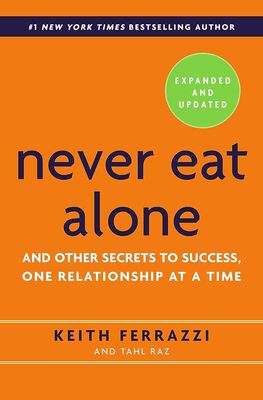
I was disappointed by this book. It's about how to be good at networking. It offers some practical advice, but it's shallow and full of long stories with vague points. As a result the book is way too long with little value. You might find it useful if you need to network for your job, like CEO, politician, journalist, etc. But in general I'd recommend avoiding it.
Attached
by Amir Levine and Rachel Heller
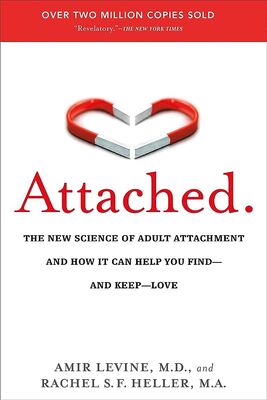
This is a very popular book and I finally got to read it. I like many stories, examples and workshop tasks in the book which make it easier to understand the point.
This book reminded me of the Models book. I feel it touches a similar subject but from a completely different perspective.
The book is generally good and I agree with most of it. However, it rubs me the wrong way.
The biggest problem, the book presents "attached model" as first and primary, while behaviour and skills are seen as secondary. That is also emphasised by the children's research. Such a presentation implies that your attached style is part of you and genetic.
The book could be very damaging if you adopt that thinking model. I'm not talking about the model itself, but the way the book tries to convince you about it. I see anxious and avoidant types are a consequences of communication skills, emotional intelligence, confidence and your relationship model. In other words the book focuses on consequences and not the cause. It does talk about the cause but is relatively minor.
Attached model explains the consequences but it is useless to fix them. Having understanding that there is a problem doesn't help if you don't understand your emotions or can't communicate them. Or expressing only feelings and not needs will get you nowhere. Unfortunately I met people who fell into the trap of using the attached model as a primary tool and got even more frustrated after not seeing improvement.
I definitely recommend this book, but with a big big caution. Read the arguments and ignore the model, it's just a distraction. Instead focus on primary factors like skills and behaviour. And probably read another book after to improve those.
King, Warrior, Magician, Lover
by Robert Moore and Douglas Gillette
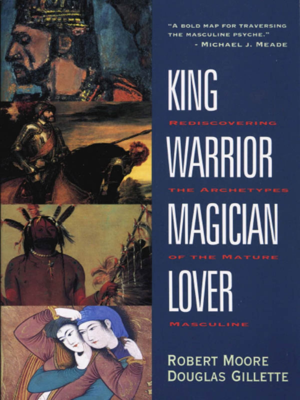
I like the idea but found it very hard to consume. The language felt dated or my English wasn't good enough for it. Although book reviews agree with me on it being dated.
The book talks about men archetypes. It's one of those books that are based on authors' opinions rather than research. I found archetype descriptions interesting but archetypes overall to be limiting.
I want to read a similar book by Rod Boothroyd, which claims to be updated for the 21st century and which has higher user ratings.
As for this book, my opinion is - meh, overrated.
Breath - The New Science of a Lost Art
by James Nestor
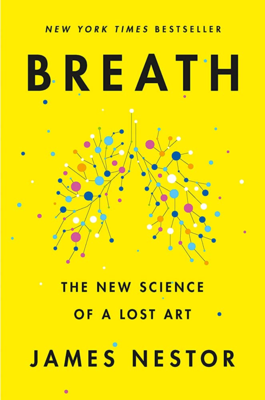
My friend recommended this book and to be honest it wasn't high on my reading list. What's there to know about breathing? Half of me was right and half was wrong.
I was surprised to discover the importance of breath mechanics and effects it could have on our body. The author doesn't offer insights himself but references doctors and researches. Turns out there are people who dedicated their lives to breath research.
However I was right, the book is overblown by unnecessary author's stories. It's funny because it seems that's the only authors content contribution to the book. When removed, the book can be cut by at least half and it will be much better at the end. Hence 2 stars. Not for the topic but for the book itself.
I had to rush it for bookclub, so I finished whole book in 24 hours. I found book interesting and can recommend it. It goes well as audiobook. If you are reading it, skip/skim author's story telling to save you time.
The Richest Man in Babylon
by George S. Clason
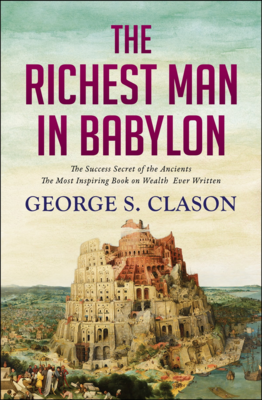
This is one of the old classics, written in 1926. I can't tell if I didn't get the book or I already live the principles in the book so they don't stand out to me. I listened the audiobook and I found it hard to follow due to old english. If you were to read this book try to find updated version of the book with modern language. I think you will enjoy it much more.
I can't recommend it, but it's a story driven, so it should be easy to follow and a bit entertaining. Read highlights on Wikipedia.
The Way of the Superior Man
by David Deida
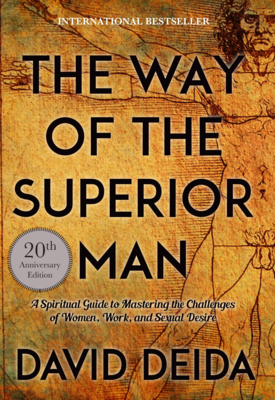
This book was recommended by my friend who said it changed her life. The book offers few models of what men and women are, and what roles they should play in life and relationships. The author doesn't bother explaining or backing up any of it, so as a reader you can only take it at face value.
Author uses sexual language a lot. For example "penetrate" is used 31 times. The book is written in a beautiful metaphorical language which is open to different interpretations. I'm yet to understand what "penetrate the world" means.
Like a popular saying "All models are wrong, but some are useful", some of the book's models can be useful. Some definitely resonated with my experience. The problem is the offered models are on a high level. Think of them as symptoms. It's easy to observe the symptoms and think you understand a disease. However it's not. If you don't know what a bacteria is, you will think "bad spirits" are the cause.
I think advice like "men should do X" with a "just because" reason is dangerous even if it's correct. For each one valid model, there are ten invalid ones.
Overall it's an interesting read. I'd like this book to be rewritten with more substance.
Purple Cow: Transform Your Business by Being Remarkable
by Seth Godin
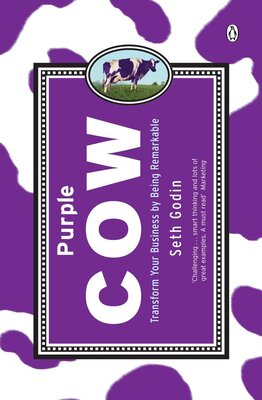
The audiobook is 3 hours long, which is relatively short, and yet I think it could be 30 minutes. The main idea of the book - (as a business) stand out from the crowd. Give people a reason to talk about you and as a result they'll do free marketing for you. That's it.
The book is a little inspirational. It has many examples and is easy to listen to.
Tools of Titans
by Tim Ferriss
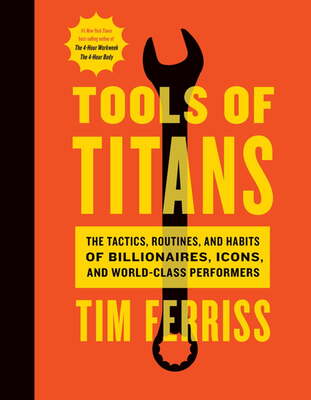
This book is a compilation of interviews of famous people. Overall the book expanded my knowledge on a variety of topics. I like the small chapters and found it great for short read sessions.
The book is mostly an aggregation of raw answers and offers very little on top of that. If you are interested in interviews, I would recommend it in audiobook, as it's long and has low content density.
Team of Teams
by Stanley McChrystal
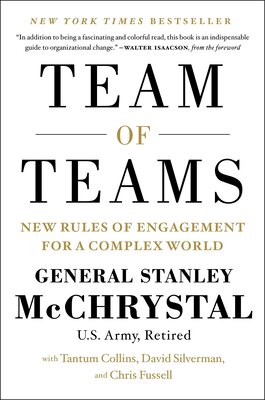
This book is highly rated and I can see why. It tells a great story from life experience. The story is engaging and exciting.
However if you want to get more than a story that's not a book for you. The book lacks research and analysis. The advice is delivered in the form: "it worked for us, so it must be great and you should do the same". While such experience is great to share, it carries little value because it's not transferable in the abstract form.
Dare to lead
by Brene Brown
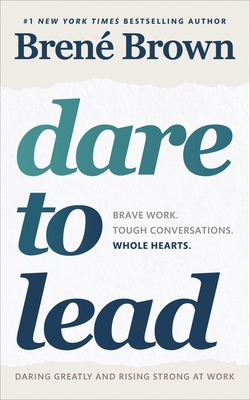
This is one of the harder reads I had. The topic and content are great. However it seems, I’m allergic to the way it is delivered. It took me 3 attempts over two years to finish the book.
The book highlights the importance of acknowledging our emotional side at work. I like that it recommends defining your values and enforcing them through hard conversations.
I recommend this book if you can finish it. If it's also hard to swallow, try an audiobook.
Skin in the Game: Hidden Asymmetries in Daily Life
by Nassim Nicholas Taleb
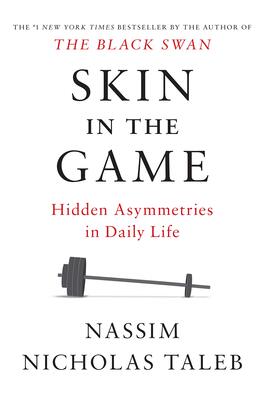
I had a very hard time following this book. It consists of many ideas from different areas and times. There are plenty of valuable insights, but a bit of glue and transitions would be nice. Right now it feels like a collection of author's notes.
I'm giving it 2 stars because I didn't get much out of it. What I've got at the surface is a common sense and I couldn't find a way deeper.
The Unicorn Project
by Gene Kim
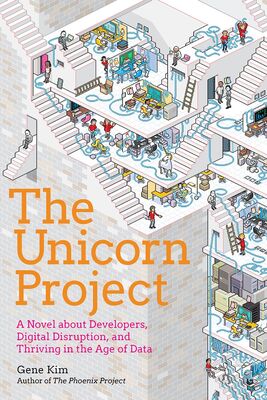
Boring. But let's start with good parts. I like how the second book looks at The Phoenix Project from another perspective. There can't be a more seamless way to connect the books. While the first book was about devops, the second is about developers. I enjoyed the part at the end when they were monitoring and fixing bugs in production. The chapter had a good pace and holds suspension to the end.
Unfortunately the second book is polluted with unnecessary details. Feels like the author wanted to show off how many cool words he knows.
The only educational part, Five Ideals, are almost forgotten as soon as they are introduced. The main character already knows it. While the story itself serves as their demonstration, ideals are detached from the reader.
The story line is turned into extremes. The main character is flawless god-like creature, while others are the most incompetent people in the world.
My favourite funny moment is when developers decided to use new technology, which they never used before. Without any experience the decision was to use it straight in production while burning bridges to the previous implementation. Unfortunately such reckless behaviour is delivered like a hero moment. It's like a surgeon decides to transplant the heart on a live patient without any experience or knowledge. 🤦♀️
In summary the book has great intentions but they are poorly delivered. Skip this book, it's not worth your time.
The Mythical Man-Month
by Fred Brooks
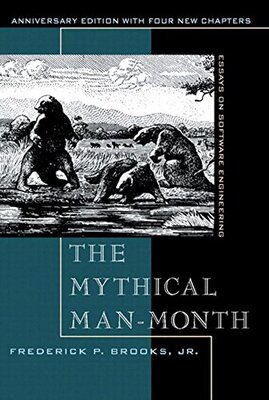
This is one of the iconic book of its time. Apparently it had a great influence. The book was republished in 1995 and author decided not to change much. Big mistake. The book has two type of content: very relevant and ridiculously outdated.
Unfortunately I run out of patience of sorting those two and I didn’t finish the book. I would not recommend this book.
The key message that you should not estimate software work in man hours because they don’t scale linearly. The communication and management overheads grow with the team size. Adding people to already late project will only delay it as there are onboarding costs.
Below are my highlights.
Tribes: We Need You to Lead Us
by Seth Godin
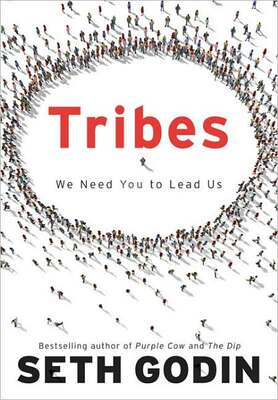
It's a weak book. The author's style of writing doesn't help either. The continuity breaks, thoughts jump and the lack of structure make it hard to build the understanding.
There are few good quotes and thoughts, but unless you are into group psychology, don't waste your time. The only reason to read this book is for completeness on the topic and to see the different perspectives.